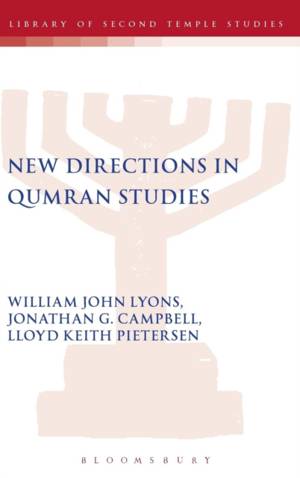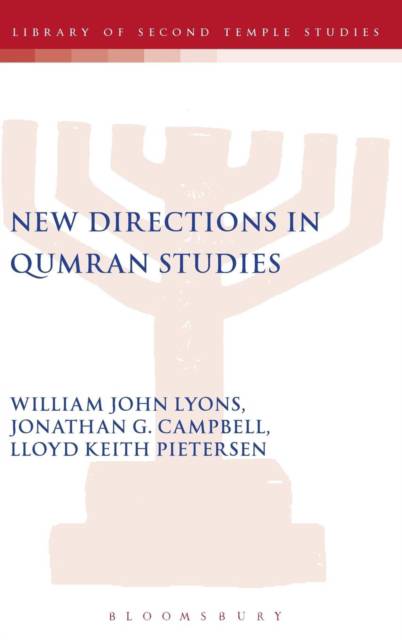
Bedankt voor het vertrouwen het afgelopen jaar! Om jou te bedanken bieden we GRATIS verzending (in België) aan op alles gedurende de hele maand januari.
- Afhalen na 1 uur in een winkel met voorraad
- In januari gratis thuislevering in België
- Ruim aanbod met 7 miljoen producten
Bedankt voor het vertrouwen het afgelopen jaar! Om jou te bedanken bieden we GRATIS verzending (in België) aan op alles gedurende de hele maand januari.
- Afhalen na 1 uur in een winkel met voorraad
- In januari gratis thuislevering in België
- Ruim aanbod met 7 miljoen producten
Zoeken
Omschrijving
Fifty years after the discovery of the Dead Sea Scrolls there have been many advances in the field of Qumran Studies. Yet much work remains undone. In particular the study of the scrolls has continued to follow long established historical critical methods while largely failing to incorporate recent advances in literary, ideological and sociological approaches.
The essays collected here are the result of the Bristol Colloquium on the Dead Sea Scrolls held in September 2003. Here, ten scholars working in a diversity of areas demonstrate how these recent advances in scholarship increase our knowledge of the scrolls, their historical context, and their impact on modern critical scholarship. The contributors consider a wide range of approaches, ranging across discussions in sociology, anthropology, literary studies, post-colonialism and ideological criticism. These essays will help to take Qumran Studies forward in new and creative ways.
This is volume 52 in the Library of Second Temple Studies series (formerly the Journal for the Study of the Pseudepigrapha Supplement series).
The essays collected here are the result of the Bristol Colloquium on the Dead Sea Scrolls held in September 2003. Here, ten scholars working in a diversity of areas demonstrate how these recent advances in scholarship increase our knowledge of the scrolls, their historical context, and their impact on modern critical scholarship. The contributors consider a wide range of approaches, ranging across discussions in sociology, anthropology, literary studies, post-colonialism and ideological criticism. These essays will help to take Qumran Studies forward in new and creative ways.
This is volume 52 in the Library of Second Temple Studies series (formerly the Journal for the Study of the Pseudepigrapha Supplement series).
Specificaties
Betrokkenen
- Auteur(s):
- Uitgeverij:
Inhoud
- Aantal bladzijden:
- 240
- Taal:
- Engels
- Reeks:
- Reeksnummer:
- nr. 52
Eigenschappen
- Productcode (EAN):
- 9780567041319
- Verschijningsdatum:
- 30/05/2005
- Uitvoering:
- Hardcover
- Formaat:
- Genaaid
- Afmetingen:
- 156 mm x 234 mm
- Gewicht:
- 512 g

Alleen bij Standaard Boekhandel
+ 831 punten op je klantenkaart van Standaard Boekhandel
Beoordelingen
We publiceren alleen reviews die voldoen aan de voorwaarden voor reviews. Bekijk onze voorwaarden voor reviews.









